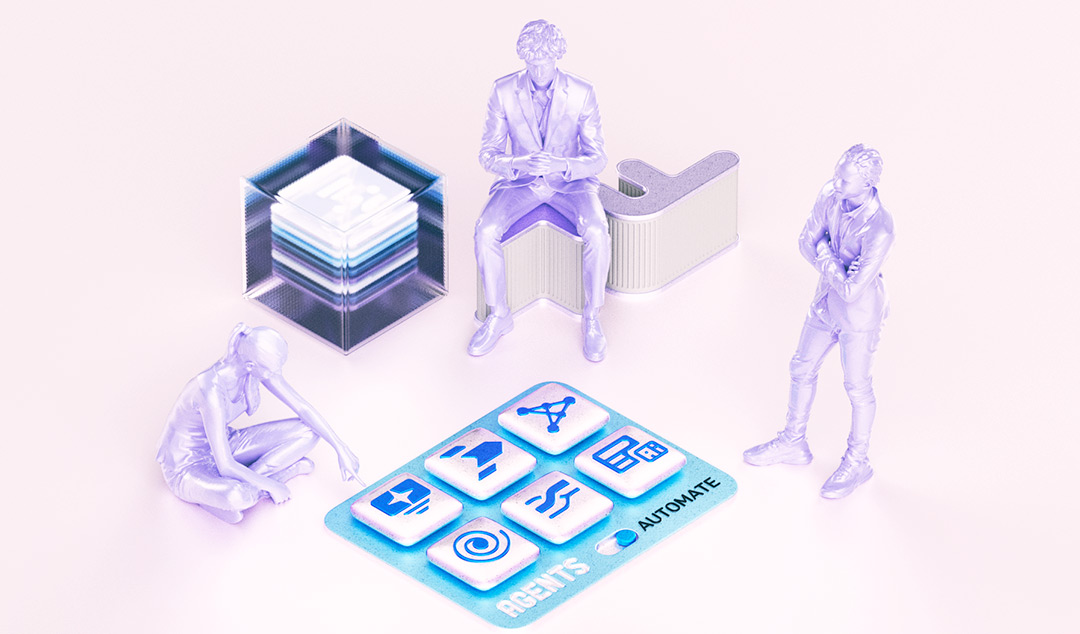New Frontier of AI Driven Software: A Solutions Engineering Perspective
The future of software testing lies in AI’s ability to create, adapt, and optimize and as solutions engineers, we have the unique opportunity to guide businesses into this new era of smarter, more intelligent software testing.

As artificial intelligence (AI) continues to transform industries, the impact on software development and testing is becoming undeniable. We are witnessing the rise of AI-driven testing tools that promise to enhance quality, speed, and accuracy in ways that traditional testing tools could not.
As solutions engineers, this shift brings new challenges and opportunities when selling AI-driven testing solutions compared to traditional tooling.
In this evolving landscape, the real challenge lies in helping customers understand, conceptualize, and embrace AI technology in software testing — an area historically dominated by human-led processes and Selenium based scripted testing.
AI in Software Testing: A Fundamental Shift
The way traditional software testing tools work is based on test cases created as scripts. Automation tools execute these scripts repeatedly to ensure the application performs as expected. This linear, predictable approach works well for static or semi-dynamic environments, but it struggles to keep up with the complexity and speed of modern software development practices. Enter AI-driven testing.
AI adds a layer of intelligence to software testing—it allows for self-learning, adaptive test automation, and self-healing. AI models can analyze historical test data, identify patterns, and predict application state changes and updates. Trained AI models allow for better understanding of requirements and test scripts, while image recognition technologies enhance UI testing. The potential is vast, but the difference from traditional methods is stark, which makes selling AI-based testing solutions a unique challenge.
Shifting the Customer Mindset: The Concept of AI in Testing
One of the biggest hurdles in selling AI-driven testing solutions is helping customers understand what these tools can do, and more importantly, why they need them. In traditional testing, customers can easily comprehend how scripts test functionality or validate user workflows. But AI-based testing can feel abstract - there are no fixed scripts, and the system learns, evolves, and improves autonomously over time.
This shift in paradigm requires a different type of conversation with customers. Instead of focusing on technical features like test case generation, autonomous maintenance and documentation or self-healing, solutions engineers must communicate value in terms that resonate with stakeholders. It’s not just about testing faster, but about testing smarter—about identifying critical failures before they happen, reducing the time spent on test maintenance, and improving test coverage in areas that would otherwise be missed.
To do this effectively, customers need to be able to visualize what AI-driven testing can achieve within their own software development lifecycle. For example, how AI can generate and maintain tests autonomously, how it can cut down regression testing time, or how it can optimize test cases by eliminating redundant steps. This kind of narrative helps customers move beyond the fear of the unknown and start envisioning the transformative potential of AI in their quality assurance processes.
Addressing Concerns about AI: Trust, Job Security, and Black Box Fear
When presenting AI solutions in software testing, especially to teams of QA professionals, we often encounter resistance rooted in the fear of automation. Traditional QA teams may see AI as a potential threat to their jobs, worrying that automated, AI-driven testing will replace human testers. There is also a fear of losing control - AI can sometimes feel like a "black box," making decisions in ways that aren’t always transparent or easily understood.
As solutions engineers, it’s crucial to acknowledge these concerns head-on. Rather than positioning AI as a replacement for human testers, it should be presented as an augmentation tool - a way to empower QA teams to focus on higher-level tasks, like exploratory testing, while leaving repetitive, labor-intensive tasks to the AI. Additionally, we need to emphasize the importance of explainable AI in software testing tools, which would help make insights and results transparent and traceable.
Change management plays a big role here. Helping customers embrace AI in testing often involves demonstrating how AI-powered tools can complement their existing processes, rather than disrupt them. For example, AI can reduce test maintenance by autonomously updating scripts as the application evolves, freeing up human testers to focus on creative problem-solving. Solutions engineers need to take on the role of both educators and advocates to drive home the message that AI is a partner, not a replacement.
Proof of Concept: Show, Don’t Tell
One of the most effective strategies for selling AI-driven testing solutions is leveraging proof of concept (PoC) projects. AI in testing is a relatively new concept for many organizations, and there is often skepticism about its effectiveness. A well-structured PoC allows customers to see how AI can add value in a real-world scenario, within their specific software environment.

Let’s consider the example of a large ecommerce company looking to improve their testing process. The company is currently using manual testing methods, which are time-consuming and error-prone. They are hesitant to explore AI-driven solutions, as they fear it may replace their existing testers. Through a PoC project, the solutions engineer can present how AI can intelligently identify critical test cases and automate them, and free up human testers to focus on exploratory testing. The PoC would show tangible results such as reduced test execution time and improved accuracy, which would prove the value of AI in software testing. This also helps alleviate any concerns about job security for human testers, as they can see how AI complements their work rather than replacing it.
Solutions engineers should work closely with the customer to identify key pain points or problem areas that can be addressed through AI. This could include reducing test cycle times, improving coverage, or identifying critical defects. Once these objectives are defined, the solutions engineer can design and execute a PoC that showcases how AI-powered tools can achieve these goals efficiently and effectively. The results of the PoC can then be used to validate the value proposition of AI in testing and generate further interest from stakeholders.
In contrast to traditional automation, which requires extensive setup and script development, AI-driven testing tools can often show results in a much shorter time frame. When customers see how quickly AI can adapt to their software and start generating intelligent tests, the conversation moves from "what if?" to "how soon?"
The Future of Software Testing with AI: Preparing for the Inevitable
The rise of AI in software testing is not just a trend - it’s an evolution that’s already reshaping how businesses approach quality assurance. For solutions engineers, this shift presents both challenges and opportunities. We are tasked with not only selling the technology but reframing how customers think about software testing altogether.
In this new landscape, the role of the solutions engineer becomes that of an educator, a strategist, and a change leader. We must help customers understand that AI isn’t just about automating scripts faster - it’s about intelligently transforming how they approach testing. AI enables better test coverage, reduces false positives, and helps QA teams focus on innovation rather than maintenance.
By focusing on value, addressing concerns about trust and transparency, and showcasing the power of AI through real-world proof of concept projects, we can help organizations embrace AI-driven testing with confidence.
The future of software testing lies in AI’s ability to create, adapt, and optimize and as solutions engineers, we have the unique opportunity to guide businesses into this new era of smarter, more intelligent software testing.












